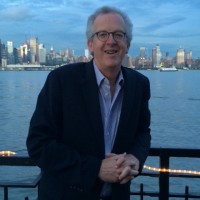American Historian, Authority on Abraham Lincoln and the Civil War
Author • Campaigns & Elections • Founding Fathers • History • The Presidency • Visual Culture
New Jersey
 American Historian, Authority on Abraham Lincoln and the Civil War
American Historian, Authority on Abraham Lincoln and the Civil War
Louis Masur is Distinguished Professor of American Studies and History at Rutgers University. A graduate of the University at Buffalo and Princeton University, he is a cultural historian who has written on a variety of topics. His most recent work is Lincoln’s Last Speech: Wartime Reconstruction & The Crisis of Reunion (2015), Lincoln’s Hundred Days: The Emancipation Proclamation and the War for the Union (2012), and The Civil War: A Concise History (2011). Masur’s essays and reviews have appeared in the New York Times, Boston Globe, Chicago Tribune, and Los Angeles Times. He has also written for the American Scholar, Chronicle of Higher Education, Salon, and Slate. Masur has been elected to membership of the American Antiquarian Society, the Massachusetts Historical Society, and the Society of American Historians and has received teaching prizes from Harvard University, the City College of New York, and Trinity College. He lectures frequently for One Day University.
Abraham Lincoln was born in humble circumstances, had only a year of formal schooling, struggled with mood swings, and endured repeated political disappointments. Yet he became a prosperous lawyer, skilled debater, masterful writer, and ranks with Washington in the pantheon of American presidents. A century and a half after his assassination, his life still offers critical lessons about leadership.
The Civil War began as a battle to save the union but it ended as a struggle to abolish slavery and usher in “a new birth of freedom.” No aspect of society was left unchanged by the years of war and its effects continue to resonate more than one hundred and fifty years later.
Hamilton is experiencing a well-deserved revival. Often forced to take a back seat to other Founding Fathers, his vision of America as an economic powerhouse with an energetic government as its engine has found many followers. Hamilton helped get the Constitution ratified, helped found the Federalist Party, and served as the first Secretary of the Treasury. An orphan born in the West Indies, he was like a son to George Washington and perhaps should have been like a brother to Thomas Jefferson.
But Jefferson fought bitterly against the Federalists and his election as president ushered in the “revolution of 1800.” Ironically, it would be Hamilton who helped assure Jefferson’s triumph over Aaron Burr. Jefferson articulated a different vision from Hamilton’s, promoting an agrarian democracy built upon geographic expansion—an “empire of liberty,” he called it. In 1793, he would resign as Secretary of State to protest Hamilton’s policies. In retirement, Jefferson would reflect on the differences between Federalists and Democratic-Republicans and express fear for the future of the new nation.
From its introduction in 1839, photography has transformed the ways in which we see the world. Photographs capture events and also transform them; they depict reality but also tell a story. Scores of photographs have changed America, and several of them will be discussed in detail. Some will not come as a surprise, while others may open eyes anew. Examining the histories of these images, and learning how to read them, provides a deeper understanding of how photographs have shaped, and continue to shape, American society and culture.